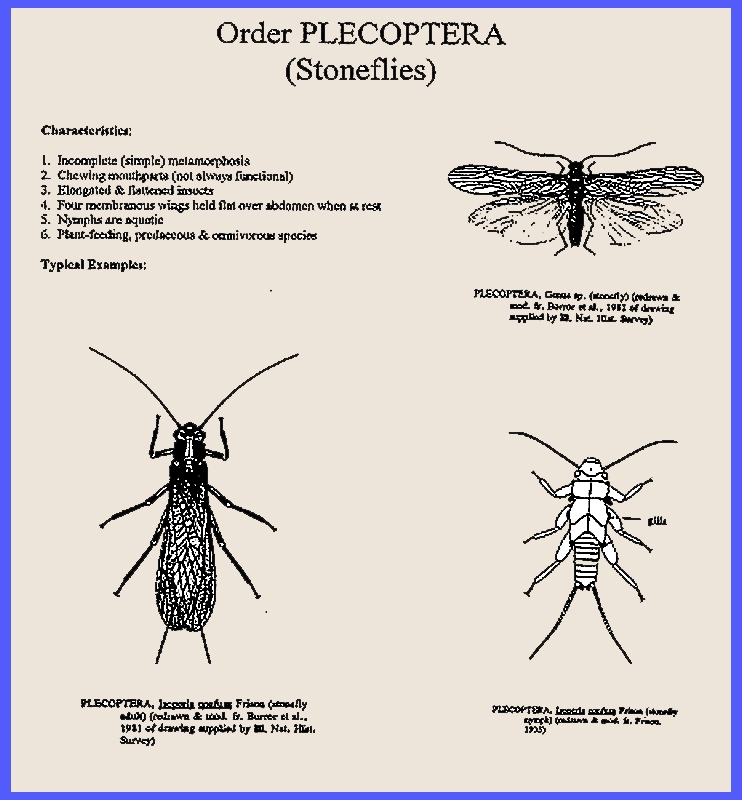File:
<plecoptera.htm> (Entomology),
(Invertebrates), (General
Index)> <Invertebrate Bibliography> <Glossary> <Site Description>
< Home>
|
Entomology: PLECOPTERA 1 Kingdom: Animalia, Phylum: Arthropoda Subphylum: Hexapoda: Class: Insecta: Order: Plecoptera (Contact)
Please CLICK on underlined
links to view and on included illustrations to enlarge: Depress Ctrl/F to search for subject matter:
The Plecoptera -- <Adults> & <Juveniles> -- These are mandibulate insects with a hetero-metabolous metamorphosis.
Although they have two pairs of well-developed wings, they are feeble fliers,
and do not move far from their aquatic breeding grounds. They have prominent elongated antennae and
3-jointed tarsi. The wing venation may represent a primitive type, as there
is considerable variation in venation in the order. The hind wing is pleated like an accordion. Both wings are folded back against each
other. Adults. -- The adults do not feed very much, and when they do they are
exclusively vegetarian. Naiads. -- The immatures are always aquatic,
inhabiting swift-flowing streams with stony beds primarily. They possess the
antennal and cercal features of the adult and breathe with thoracic and
abdominal gill tufts in various positions.
Sometimes vestiges are found on adults, although these are not
aquatic. The antennae are long. Distribution. -- Like most aquatic insects they
have a wide distribution particularly in mountain streams. The most generalized families are found in
southern regions and the most specialized in northern regions. Perla
maximum is a common
species found in European streams (Borradaile & Potts, 1958). Importance. -- Plecoptera naiads are of value as a
diet for freshwater fish species, while adults serve as food for various bird
species around freshwater habitats. ------------------------------------------- Details
of Insect Taxonomic Groups Examples of beneficial species
occur in almost every insect order, and considerable information on
morphology and habits has been assembled.
Therefore, the principal groups of insect parasitoids and predators
provide details that refer to the entire class Insecta. These details are available at <taxnames.htm>. ============== |



